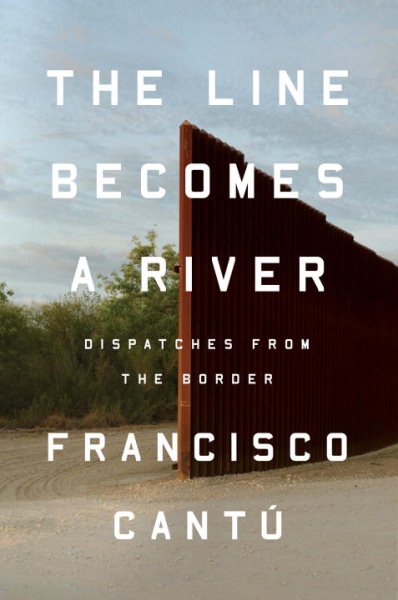by Abbie Walker
Lately, I’ve been on a nonfiction kick. There’s something about a true story that engages and connects me more than any other genre. It’s a chance to take part in a conversation that’s happening in the world, allowing the reading experience to go beyond me and the book I’m holding.
 One such conversation I feel like I’m not that knowledgeable about is immigration. I hear a lot of things, but haven’t really tried reading about the topic myself. So when The Line Becomes a River fell into my hands, I knew it was a chance for me to start listening to that conversation more closely.
One such conversation I feel like I’m not that knowledgeable about is immigration. I hear a lot of things, but haven’t really tried reading about the topic myself. So when The Line Becomes a River fell into my hands, I knew it was a chance for me to start listening to that conversation more closely.
The Line Becomes a River: Dispatches from the Border is the true account of Arizona native Francisco Cantú, who served as an agent for the United States Border Patrol from 2008-2012. His retired park ranger mother thought he was crazy when he told her that he’s going to go work at the border, but Cantú is determined to immerse himself in a place he has spent the past few years studying.
The book is structured into three parts. The first two are comprised of vignettes about Cantú’s work with the border patrol, both out in the field and behind a desk. Taken from his journal entries during those years, he writes about rescuing stranded migrants out in the desert, tracking drug smugglers, and researching the Mexican cartels. These snapshots of life along the border paint a vivid picture of a place few really understand.
Cantú’s experience proves that things aren’t always black and white out at the border. The numerous characters he encounters cross between countries with all kinds of intentions, and Cantú often struggles to make sense of his duty to his job and his moral duty. Plagued by strange dreams, he fears losing his humanity in a profession where the line between guilty and innocent is often a thin one.
The third part of the book has the strongest narrative and was what really sealed the story as a winner for me. It follows Cantú after he leaves the Border Patrol and is working at a coffee shop. His friend, José, gets detained coming back to the U.S. after visiting his dying mother in Mexico. José, though an undocumented migrant, is a hard worker with a family and an entire community that rallies to support him during his trial. Cantú offers a realistic and heartbreaking account of what families like José’s go through.
Cantú’s writing is strong. I love how he blends in the history of the border, as well as Spanish dialect and local color to make the narrative more authentic. Cantú is anything but preachy, letting his personal encounters do most of the storytelling, hoping that his internal conflict stirs something in the reader as well.
I really enjoyed Cantú’s interactions with his mother in the book. The daughter of a Mexican immigrant, she acts as a voice of reason and great contrast to the harsh environment that Cantú is being exposed to on a daily basis.
I think we can all relate on some level to Cantú, who at first wants to ignore what happens to people once he rescues them from the desert and delivers them to detention. But, as is the case with his friend, José, it’s not so easy to ignore the outcome once you or a loved one is put in that situation.
Overall, I recommend this book to anyone who wants to learn more about what is happening on the border or anyone who thinks they know. It’s an eye-opening book that humanizes a minority in a tension-filled political climate.
Join the conversation: Francisco Cantú will be signing copies of The Line Becomes a River at Lemuria on Monday, April 9 at 5:00 pm. The Line Becomes a River has been selected for Lemuria’s First Edition Club for Nonfiction Readers.


